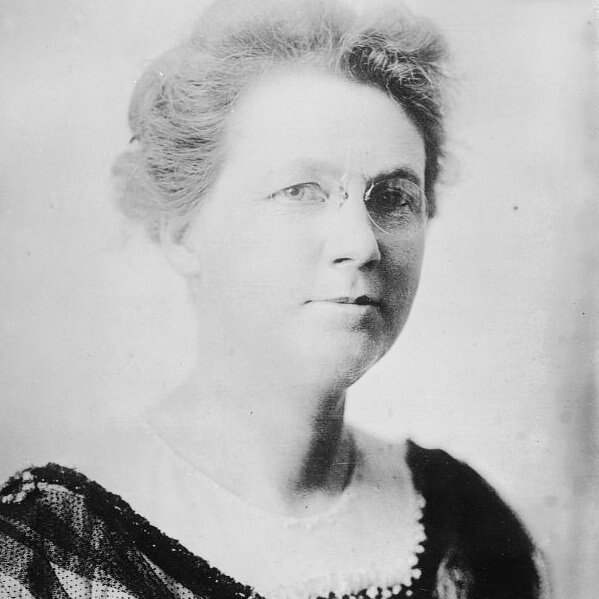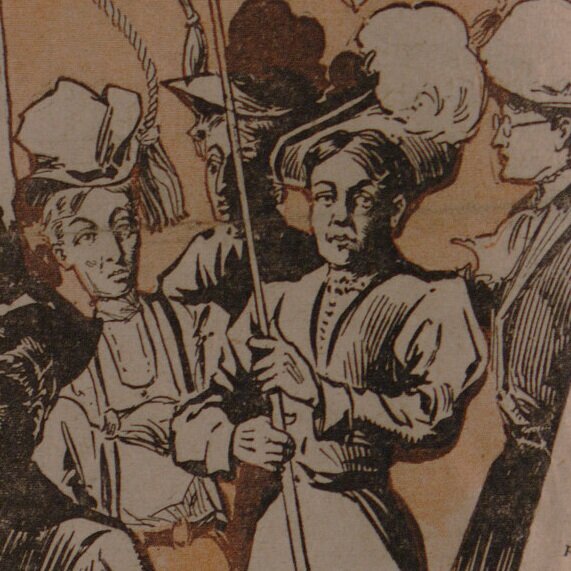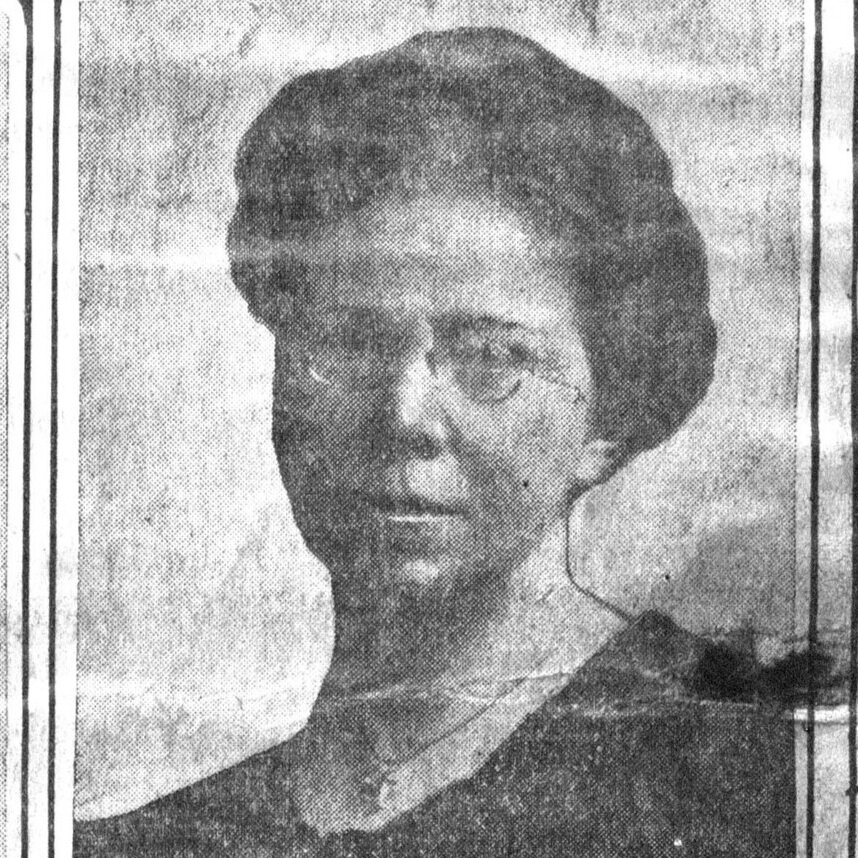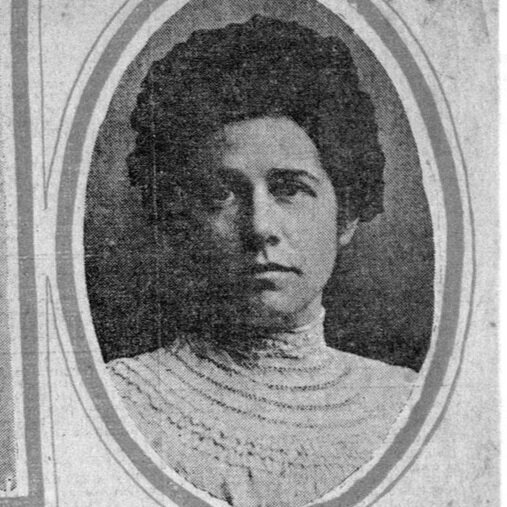The year 2020 will be memorable for many reasons. Among other things, it marks the centennial anniversary of the passing of the Nineteenth Amendment, granting women's suffrage in the U.S. It is the 110th anniversary of women's suffrage in Washington State.
The women's road to suffrage in Washington State moved slowly and suffered many setbacks. While the origin of the Women's Rights movement is attributed to the 1848 Seneca Falls Convention in New York, smaller regional groups championed women's rights at the local level. Each state has its own story of the tireless leaders who campaigned to have the voices of women heard in matters outside of the home.
When the Washington Territory was formed in 1853, one of the first things considered by the legislature was the qualifications of electors. From 1854 to 1867, various changes were made to the specific voting requirements for males. In 1867 the language of the law was changed again to give the right of suffrage to "white American citizens," a qualifier that presumed to include women. However, when women attempted to vote, they were rejected.
The following year, a state bill for women's suffrage was put to the vote. Prominent suffrage advocate Susan B. Anthony toured the west with suffragist and writer Abigail Scott Duniway of Portland, Oregon, to rally for support of the bill. Reports of Anthony visiting a tavern did not endear her to Temperance supporters in Walla Walla. The Isaacs family, prominent local suffragists, took her in. While the bill failed to pass under the provision that women's suffrage would have first to become federal law, the defeat fueled the creation of many regional suffrage groups to continue the fight.
When legislators met in Walla Walla to draft a state constitution in June 1878, a group of suffragists submitted a petition with 600 signatures to include the women's vote. The group also requested that Mrs. Duniway speak on behalf of their cause. It was recorded that "During the recess the hall soon filled with the ladies of Walla Walla, and vicinity ... The interest taken in this Territory on the right of women to vote, was manifest by the number of ladies turning out to witness the presentation of a memorial by their champion." The petition was denied, and an article declaring that no individual could be denied suffrage because of sex was voted down.
In 1883, the voting law was amended to change mentions of "his" to "his or her," enfranchising white and Black women in the territory. It was amended again in 1886 to specifically include the word female. In this same year, the Walla Walla Woman's Club was formed. The earliest of such clubs began in New York in 1868, and others soon formed in larger cities around the country. The club's stated purpose was "self-improvement and a mutual interchange of ideas," and included discussions about child-rearing, education, the home, and religion. These clubs were often involved in civic improvement projects and charitable work. Suffrage was also a topic of interest, and suffrage organizations often approached these groups to garner more centralized support.
In 1887, the Territorial Supreme Court declared both the 1883 and 1886 suffrage laws invalidated due to a technicality. Women's Club member Bessie Isaacs tried focusing more discussions on suffrage, but meeting attendance dwindled toward the end of 1887, and no meetings were scheduled the following year. At this time, the Washington Territory was moving toward statehood, with the second Constitutional Convention set to meet in Olympia in 1889. Another amendment granting suffrage, which passed in early 1888, was the last chance for women to have a say in the delegates who would draft the new state constitution. Unfortunately, the amendment was overturned by the Territorial Supreme Court. Suffragists now had to fight for the women's vote to be incorporated into the constitution or, failing that, added as a constitutional amendment.
In April 1888, Woman's Club members, including Lucie, Grace, and Bessie Isaacs, formed the local chapter of the Equal Suffrage League. They worked within a state-wide network that raised money to print and distribute pro-suffrage literature and gather signatures for petitions that would be submitted to convention delegates, as had been done in Walla Walla ten years before.
Group members even attended an Advocates of Equal Suffrage Conference in Olympia to pressure those writing the state constitution to include women as voters. Despite these efforts, the new constitution defined voters as male citizens.
After this defeat, suffragists shifted their goal to get women's suffrage added as a constitutional amendment. Again movement leaders traveled around the state to gather support, and Duniway returned to Walla Walla in September to speak at Small's Opera House with Bessie Isaacs. They devised a demonstration, taking out a half-column ad in the Walla Walla Journal instructing women to go out and vote on both the constitution's ratification and the separate women's suffrage amendment, even if their ballots were rejected.
The Spokane Falls Review reported that "it was unanimously resolved to offer votes at the polls on election day, and in ease of their rejection to deposit them in separate ballot boxes preparatory to a contest to have them counted." Unfortunately, despite all of the publicity the cause received, the vote for suffrage again fell short. With the urgency of influencing the new constitution ended, the Equal Suffrage League quietly disbanded.
Later women's suffrage tactics centered on gentle influence as women worked to persuade the voting males in their lives. Instead of antagonizing anti-suffrage proponents with demonstrations, suffragists appealed to homemakers by producing literature about home interests, even publishing a cookbook peppered with pro-suffrage passages between recipes for bread and cakes. The subtle yet powerful strategy worked, and women won the right to vote in Washington State in 1910. Lyman wrote in his History of Old Walla Walla County (Vol. 1, 1918) that "It has seemed to the voters of both sexes so natural a condition that they can now hardly conceive of any other. The woman suffrage amendment came with a remarkable quietude and almost as a matter of course." Many of these local suffragists continued to fight for national suffrage, participating in meetings until the Nineteenth Amendment was passed in 1920. Washington was 34th of the 36 states needed for the amendment to finally pass.
While voting was considered a fundamental right in the Declaration of Independence, many people did not qualify as citizens because of race or sex. The suffrage gained by women in 1920 did not apply to all women, and racial discrimination existed within the suffrage movement despite having a common goal. When suffrage was legally won, opposition states used poll taxes and literacy tests to keep unwanted voters from the ballot boxes. Intimidation and violence were not uncommon. Indian people were legally acknowledged as citizens in 1924, Asian Americans in 1952, and despite the Fifteenth Amendment (1870) granting suffrage regardless of race or previous condition of servitude, significant progress toward voting equality for African Americans did not occur until the Voting Rights Act passed in 1965. While the country has come a long way, it still has further to go before its natural rights are enjoyed equally by all its citizens.
Image credit: many images and documents related to Washington State suffrage efforts can be found through Primarily Washington.
Spotlight on Local Suffragists





